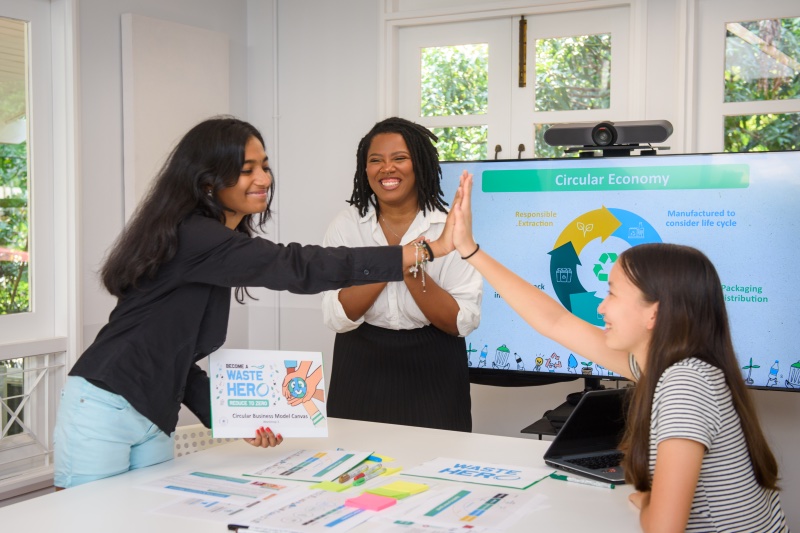Sustainability
‘Waste Hero’ recycling education program delivers significant social value in Indonesia and the Philippines
www.WasteHeroEducation.com promotes recycling fundamentals, zero waste, and circular economy principles by offering teaching materials on a dedicated website that teachers can easily access and adapt to classroom environments. These include 19 free lesson plans, in multiple languages, across six educational levels, endorsed by an Educational Advisory Group of 23 experts from 17 nations. The Waste Hero program empowers communities to manage household waste efficiently and disseminate waste management and waste reduction knowledge to school staff, families, and local communities. The program is a key part of Indorama Ventures' Corporate Social Responsibility (CSR) commitments.
80% of students and educators expressed satisfaction with the materials and resources. The program achieved significant Social Return on Investment (SROI) of 4.49 times for every $1 spent in Indonesia and the Philippines, according to an assessment by Environmental Resources Management (ERM), a leading international sustainability consultancy. The positive social impact in Indonesia and the Philippines includes 338 educators reporting that Waste Hero improves waste separation at source. Additionally, 284 educators agreed that the Waste Hero program reduces expenses on education materials and teacher time and 296 schools reported that the program reduces teacher training and webinar attendance expenses.

Through Yunus Thailand’s promotional campaigns and affiliates, the Waste Hero program raised awareness and instilled sustainable practices among 6,677 educators and 274,664 students. Furthermore, the program leveraged SEAMEO SEPS’ network encompassing more than 1,000 Southeast Asian schools, reaching 586 teachers and 138,392 students to foster a waste management and environmental stewardship culture.
Mrs. Suchitra Lohia, Deputy Group CEO and Chairperson of the Corporate Social Responsibility Committee at Indorama Ventures, said, "The achievements of the Waste Hero program showcases Indorama Ventures’ unwavering commitment to promoting the circular economy and generating social value, aligned with our CSR strategy. We are proud of our collaboration with SEAMEO SEPS and the program’s impressive impact in empowering communities across Indonesia and the Philippines to manage waste and build a circular economy”
Duriya Amatavivat, Centre Director, Southeast Asian Ministers of Education Organization for Sufficiency Economy Philosophy for Sustainability (SEAMEO SEPS), addressed that "I am proud that SEAMEO SEPS has had a leading role in disseminating the Waste Hero teaching resources to all school networks in Southeast Asian countries. This initiative aligns with the SEAMEO SEPS mandate, nurturing a SEP mindset, cultivating values and guiding the decision-making process to address local, regional and global challenges. This collaboration with Indorama Ventures and Yunus Thailand Foundation created an opportunity to promote Recycling, Zero Waste, and Circular Economy practices among youth across the region, fostering responsible global citizenship and contributing towards building a sustainable future."
SROI is a methodology used to quantify the social impacts generated by a CSR program relative to the investment made. This approach ensures that its programs are designed and developed to maximize societal and community benefits while efficiently utilizing the company's capital and resources. The measurement process involves identifying key activities and stakeholders, conducting surveys and in-depth interviews, and developing an Impact Value Chain analysis, utilizing secondary data and financial proxies to assign monetary value to outcomes.
